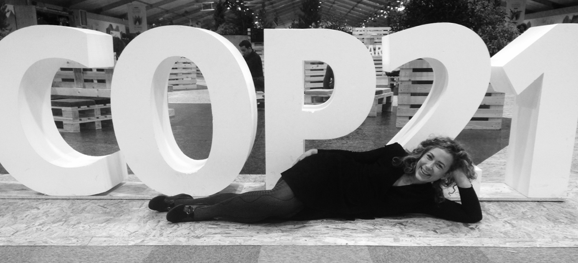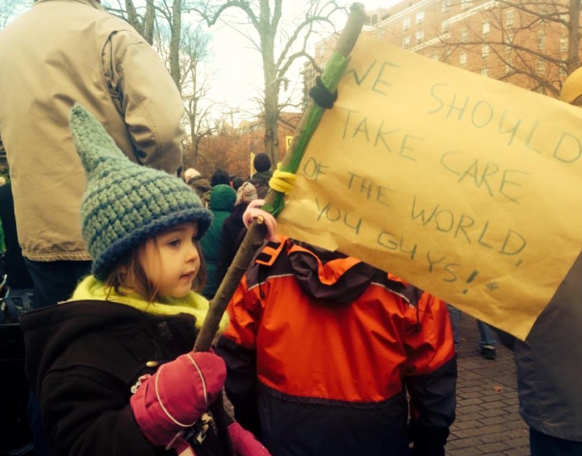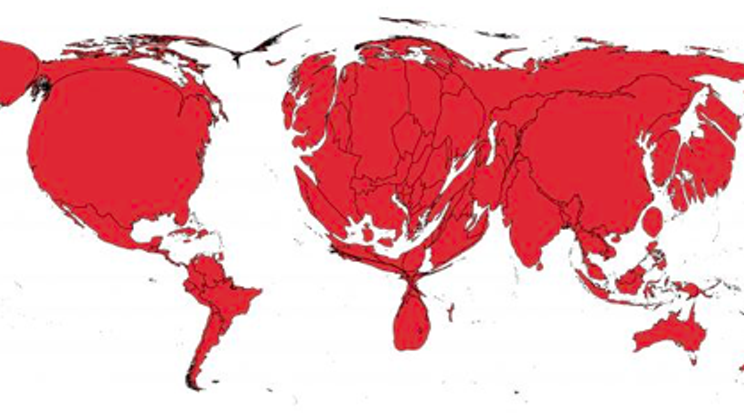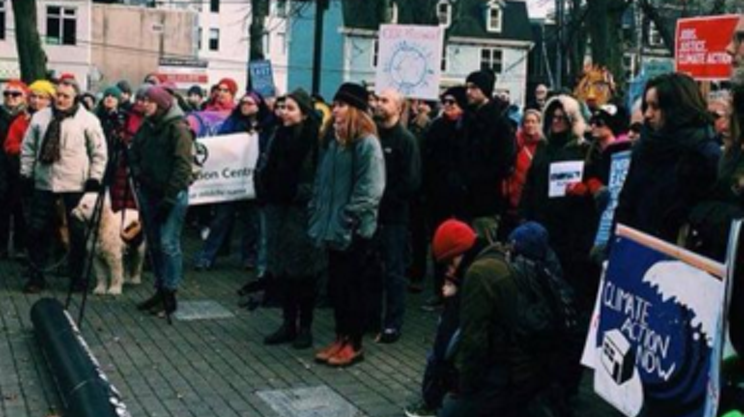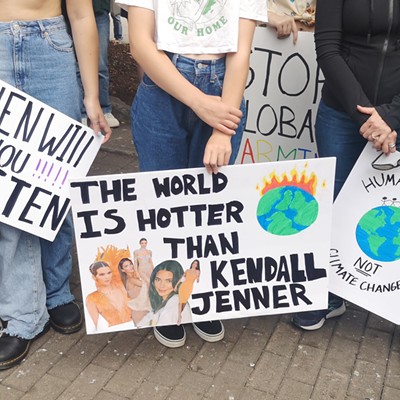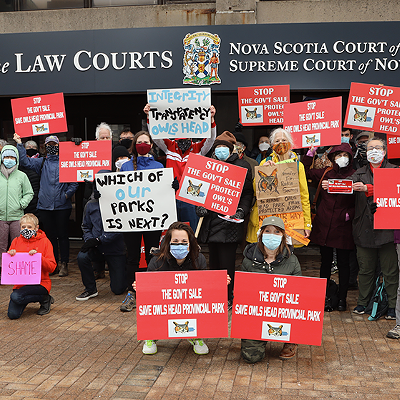Shit has officially gotten real at the Paris climate talks. Canada’s new Environment and Climate Change minister, Catherine McKenna, left the negotiating table at 7am this morning and returned five hours later for another round of overlapping meetings. Every room in the sprawling airplane-hanger compound that hosts the conference has at least three napping people in it. I’m considering trying an energy drink for the first time. Coffee stopped working at some point Tuesday.
We anticipate the final agreement will be released tomorrow (Saturday) morning and—I’m going to be real with you—expectations are not high. It’s not over till it’s over, but yesterday’s draft suggests we’re headed down that well-trod path of least-common-denominator.
Here’s the thing, though: I’m not worried.
For decades these documents have been falling short of what we need and despite that we’ve gone on with our business of changing the world.
It’s not that the process is empty. Getting 196 countries into one space to hash out a mutually agreeable approach to tackling a mind-boggling threat is almost inconceivable. Throughout days of blurry thinking and syllable-by-syllable reading, I am regularly shocked that so many thousands of us are here, with all of our profound similarities and stark differences, for this single purpose.
The process is, however, incredibly abstract. We all spend endless intense hours locked in conversation and analysis, divorced from the outdoors and even further removed from the real-world experience of global turmoil. In this context, it’s easy to lose track of the connection between the formalities of UN procedure and the urgent need to stand with the world’s most vulnerable and prevent the worst environmental, social and political impacts of climate change.
I believe a lowest common denominator agreement may be better than an even worse alternative, which is an agreement that seeks consensus not simply by weakening elements but eliminating them altogether. An agreement that is weaker than we'd hoped but contains the essential elements leaves the door open to future dialogue and strengthening; an empty agreement permanently hampers the world of international climate change negotiation.
There’s the rub: the agreements that result from these negotiations disappoint more often than not, but the conversations that contribute to developing them are absolutely essential. The final product may make some of us question the value of this process, but the final product almost isn't the point. It’s the journey to the agreement, it’s the potential for continued dialogue, that’s what matters here.

And it’s the brilliant breaks in procedure that crack open thousands of hearts at a time. Yesterday, a handful of African delegates hosted an improvisational performance that depicted the impacts of climate change in a family home. It was followed by music and breakdancing. Earlier this week, a member of the Canadian Youth Delegation told the Canadian government her story of watching people die in the streets of her home country from heat stroke while forest fires ripped through Canada and implored them to take action. Many of us cried. Last week, the president of small island state Tuvalu opened the negotiations with a resounding declaration: “We will not give up out fundamental right to exist.”
When drafts of the text started coming out earlier this week, I started a new tradition. I spend 10 minutes walking around the conference site, taking in the individuals crouched over smartphones, or groups huddled around paper copies. And then, about an hour later, I spend another 10 minutes walking around peeking at computer screens as people pen responses in almost every world language spoken. The significance of these moments is overwhelming.
I know that whatever this final document says, I and my countless amazing colleagues here in Paris and back home are going to work our butts off to make sure that our home provinces, Canada and the rest of the world do all we need to do to. I know we will ensure a just transition to a 100 percent renewable energy system by 2050. I know we will support vulnerable communities at home and abroad as they adapt to the impacts of climate change. And, I know we will evolve a political culture that has human rights, including the rights of indigenous peoples, at its heart.
I know that we are already successful because the transition we seek is well underway and gaining momentum. The status quo of reckless resource exploitation, profit-fueled pollution and gutless capitalism is in its death throes. It will be a long and violent death, and we must fortify ourselves and younger generations for a vicious final face-off. We must seek allies whenever and wherever we can. We must cultivate compassion for each other and for ourselves, because change is hard and uncomfortable and we all rebel against it regardless of how deeply we believe in it. We must exalt in the knowledge that we are already winning.

